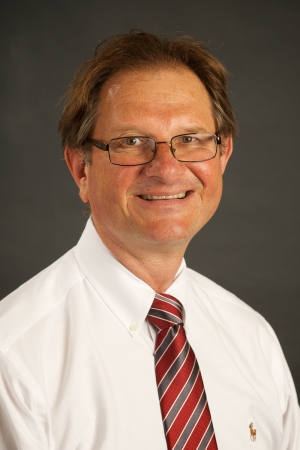Palinkas to Explore Psychological Effects of Communication Delays in Space
November 02, 2012 / by Eric Lindberg- Research
Outer space isn’t exactly the first setting that comes to mind when considering the role of social workers, but USC School of Social Work professor Lawrence Palinkas is taking the profession to new frontiers.
Supported by a new $724,525 grant from NASA, he is leading an effort to examine the effects of communication delays between astronauts and mission control on the performance and behavioral health of crew members in space. Although delays are rare during current missions, Palinkas said the issue will become increasingly critical as astronauts begin making longer trips into the galaxy.
“When we get to Mars, the delay is going to be 20 minutes one way,” he said. “So imagine calling your husband or wife from Mars and saying, ‘Hi honey, how are the kids?’ and waiting 40 minutes before you get an answer.”
The three-year study will involve simulating communication lag between astronauts on the International Space Station and ground control staff to determine how crew members cope with stressful situations and new forms of isolation.
“Would they be stressed out by it, would they identify a way to cope, would they act more autonomously?” Palinkas said.
Crew members will be asked to perform a set of specific tasks during the course of four weeks, split between the beginning and end of their six-month stay on the space station. During two of those weeks, they will experience a 50-second delay in interaction with mission control.
Additionally, the jobs will vary in terms of how novel and critical they are in nature—that is, whether the astronauts received any training for each task and whether each situation is life-threatening or menial.
“Cleaning out the toilet is not novel or critical,” Palinkas said, “but responding to a medical emergency could be.”
Palinkas and his research team will record all communication and rate the crew’s performance with regard to how accurately, efficiently, safely, and successfully they were able to complete their assigned tasks.
“We will also be asking them to rate their performance and the quality of the communication they had with ground control, as well as how stressed they were, how much support they felt they were getting from mission control, and how much autonomy or independence they felt they could exercise,” he said.
To date, only a handful of studies have observed how individuals and teams in remote environments respond to delays in communication. Palinkas served as a consultant on one recent project that examined communication lag between ground staff and a group of astronauts in an underwater habitat off the coast of Florida.
Part of the experiment involved simulating a sting from a toxic lionfish that left one crew member in shock. A 5-minute delay resulted in the underwater team deciding to inject adrenaline directly into the patient’s heart, Palinkas said, rather than diluting it in a saline drip as medical personnel at mission control would have advised.
“It was fairly clear that they were jeopardizing the safety of the astronaut,” he said. “The 5-minute delay in communication was pretty much the same as not having any communication whatsoever. It wasn’t just a minor irritation or inconvenience.”
Although the underwater project was useful in highlighting some of the issues surrounding communication lag, Palinkas said the new study involving astronauts on the International Space Station should be more informative.
“Because they are living in isolation and confinement, and because they routinely do tasks that involve communication to and from mission control, they make a great analog in a way that even that underwater habitat couldn’t,” he said. “Now they are dealing with situations that people in space are likely to have to deal with.”
Due to the small number of available participants—only three U.S.-affiliated astronauts are stationed in space at any given time—the researchers hope to replicate the study with three to five different crews during the next few years.
Palinkas is hopeful that findings from the project will prove useful in terms of improving training programs for astronauts to handle anxiety and stress, as well as developing technology that helps mitigate the negative effects of communication delays.
Other members of the research team include Chih-Ping Chou, a senior biostatistician with the USC School of Social Work, and members of the Behavioral Health and Performance Element of the NASA Human Research Program. The study runs through September 2015.
To reference the work of our faculty online, we ask that you directly quote their work where possible and attribute it to "FACULTY NAME, a professor in the USC Suzanne Dworak-Peck School of Social Work” (LINK: https://dworakpeck.usc.edu)
